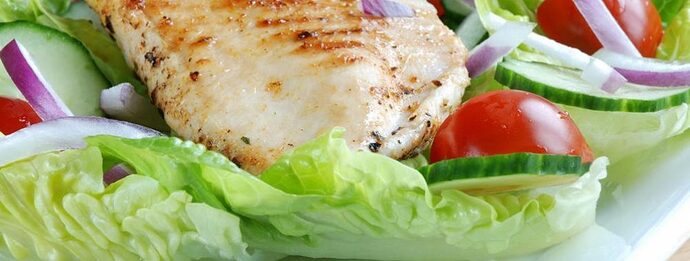Healing is a pivotal factor when it comes to surgeries. Surgical operations are carried out only when they’re necessary or when there is no alternative or agreeable way out of a medical condition. Surgeries are meant to readjust and restore normal physiological functions of the body. It is an invasive and vulnerable process for the patient. A surgery isn’t successful until the postoperative care is followed through for speedy recovery.
Surgeries commonly cause inflammation, swelling and bruising. However, having the right diet and incorporating all the right foods in it can minimize these side effects and prepare your body for quick recovery. Here are 4 healing foods that will fuel your body to get back on your feet and equip you with the macro and micronutrients to strengthen your immunity.
Increase lean protein intake
Collagen is a structural protein in our body that contributes to the physical structural integrity of physiological components such as blood vessels, hair, skin, tendons, bones and many other parts of your body that demand structural support. Post-surgery protein demand for your body increases from 0.8 grams per kilogram of body weight to up to 2 grams per kilogram, and it must be met. Eggs, fish, beans, legumes, soy and turkey are rich sources of protein. You need this extra protein intake to repair the incisions in your body to heal and mend through the formation of collagen.
Fermented Dairy for ease of digestion
Nosocomial infections are a dangerous threat after surgery. These infections occur from the hospital environment after an open surgery, and can prove to be deadly for the vulnerable patient. This is why antibiotics are prescribed after surgery to prevent any such infections from taking over, but they also kill the normal flora of the body that are responsible for contributing to normal functions. E.Coli lined in your small intestine is amongst the good bacteria that aids digestion of food and may be affected by the prescribed antibiotics too. To prevent the antibiotics to take a toll on your digestion, you can repopulate your normal intestinal flora by eating fermented dairy foods that include yogurt and kefir. A small serving of kefir can introduce 8 to 12 normal flora species!
Fiber
Fiber is an important nutrient in our body that decreases the absorption of cholesterol across the microvilli in our small intestine but, most importantly, it provides something for the intestine’s peristalsis activity to push against and facilitate the excretion of waste. Post surgery pain medications, anesthetic agents, alterations to diet, dehydration, stress and reduced physical activity can all contribute to the digestive upset patients experience. Prunes are a rich source of soluble as well as insoluble fiber which facilitates the elimination of stool. Other fiber containing foods include beans, apples, pears, bran flakes, oatmeal, flaxseed meal and legumes.
Mushrooms
Did you know that an intake of about 4 oz of Shiitake mushrooms can rapidly boost your immune system by increasing the performance of gamma delta T-lymphocyte cells. T-lymphocytes are the warriors of your immune system. The mushrooms also reduce the quantity of proteins responsible for inflammation, thereby reducing inflammation itself. Who doesn’t like a good mushroom soup anyway?
Cover picture by – yayimages.com
